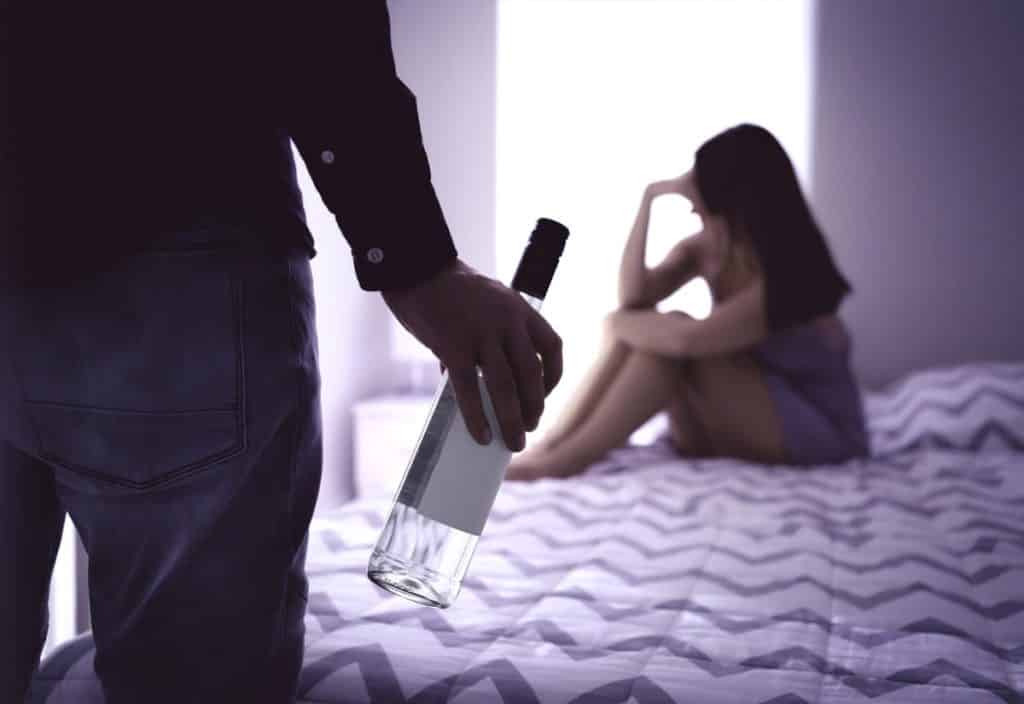In the last week of March, alcohol sales increased by a whopping 55% in the US after the president spoke further on the impending severity of the novel coronavirus. That’s a pretty massive leap.
Of course, the liquor industry is reaping these benefits. Even some restaurants are taking advantage of the surge in alcohol sales by offering their customers the option to add alcohol onto their take-out order. Indeed, it’s been easier for most people to purchase liquor than toilet paper, but what does this mean if you’re a recovering alcoholic?
Unfortunately, COVID-19 is creating the perfect storm for recovering addicts to relapse on alcohol.

Relapsing on alcohol is already common, but with the novel coronavirus, it has the potential to get much worse. Luckily, substance abuse treatment can help alcoholics achieve long term sobriety – even during a global pandemic.
COVID-19’s Effects On Alcohol Abuse
Studies show that financial stress increases the risk of alcohol abuse and relapse on alcohol, especially in men.
Unfortunately, there’s no denying that COVID-19 is putting financial stress on millions of Americans. In the last week of March, 2020, almost seven million people applied for unemployment insurance.
Not only this, but COVID-19 is forcing millions of people to quarantine themselves in isolation and limit their social interactions with their family members and other loved ones. Although we have social media to keep somewhat connected with those we love, it’s still difficult to feel completely socially fulfilled by smiling and speaking at a screen.
Anyone in recovery understands the importance of a strong support network to put more barriers between themselves and their drug of choice. When someone is stripped of their support network, their risk of relapse increases tenfold.
Then there’s the fact that, for recovering alcoholics, a steady and habitual routine is necessary to maintain sobriety. Unfortunately, several ex-alcoholics’ routines are getting disrupted by the social shifts of COVID-19.
Until the end of the COVID-19 global health crisis, we won’t know the full extent of its impact on substance use disorders in the United States.
However, the evident collateral damage of the novel coronavirus outbreak, like isolation and financial stress, are all potential triggers for relapse. If an alcoholic is unable to prevent a relapse, they ought to try inpatient treatment to help get them back on track.
Why Mixing Alcoholism With COVID-19 Can Be Lethal
Prolonged alcohol abuse negatively affects peoples’ health. People suffering from alcoholism pose a higher risk of not only getting sick but also getting sicker than their non-alcoholic peers.
Alcohol, when used excessively, isn’t just linked to liver disease, but also to many pulmonary conditions. One study on chronic drinkers revealed that overuse of alcohol put drinkers at a higher risk for developing diseases like Pneumonia.
Chronic drinking and COVID-19 simply don’t mix. Those who relapsed on alcohol during the novel coronavirus outbreak must consider the severity of relapse’s implication, and whether alcohol treatment might be the right choice for them.
How An Inpatient Treatment Center Can Help
Inpatient treatment programs, like Hotel California by the Sea’s alcohol use disorder rehab center, provide the structure, support system, and mental health treatment necessary to stay sober.
Inpatient treatment for addiction to alcohol or drugs allows alcoholics the safe space necessary to sort through murky feelings and work through repressed trauma. Sometimes, people also have co-occurring mental health conditions that exist alongside alcoholism, like depression, anxiety, and PTSD. These conditions can worsen alcoholism, and inpatient treatment programs can treat both diseases simultaneously, helping someone recover fully.
Whether someone relapses after an extended period of sobriety or starts abusing alcohol for the first time during self-quarantine to cope with fear, anxiety, boredom, or loneliness, inpatient treatment can help. Reach out to our addiction professionals today if you or a loved one is struggling with a substance use disorder or other co-occurring mental health condition.
Professional assistance is available 24/7 to the addicts and alcoholics that need it. Don’t let COVID-19 ruin your recovery. Seek help today.
